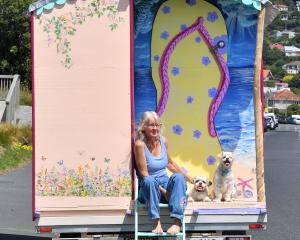
Te Kaika has started a new smoking cessation programme, which offers patients a four-week interactive course and support on their journey to becoming smoke-free.
About 30 people, including people aged from 21 through to 86, had already signed up to the He Manu Kokiri programme which launched last week.
Health improvement practitioner Sarah Redfearn said the name of the programme, which referred to a legend where a flock of birds helped each other to get to their desired location, was fitting as working together was what it was all about.
It involved a group of people supporting each other to reach the same goal.
Some people would smoke to help with feelings of anxiety, or anger, and some elderly people often felt lonely, so it was important to include social contact and support in the programme, she said.
Each patient would be offered tools to deal with mental and emotional roadblocks, learn healthier ways of living, and have access to personal support.
Nicotine replacement therapy medication would also be arranged, as well as free access to the Headspace app.
"It is a very holistic thing, quitting smoking — it is mind, body and soul," Ms Redfearn said.
Margaret Kirk, of Dunedin, who started smoking when she was 12 years old, signed up to the programme on Tuesday.
Her goal was to keep busy and active, and "bloody well give up", as she enjoyed walking and wanted to be able to do it without running out of breath.
General practitioner Kim Maiai said the programme offered a lifestyle upgrade in a non-judgemental way.
"A problem shared is a problem halved."
Even for those who did not reach their goal of tobacco cessation, other important health and wellbeing skills would be gained, he said.
The programme was designed not only to build flexibility of the mind, but also physical resilience.
That was where mauri kaimahi (health coach) Ilai Elekana Manu, who runs the gym, community garden and walking group, stepped in.
People could attend the gym alone, or he would personalise a training programme for them.
Besides physical activity, it was an opportunity to meet others on a similar journey, he said.
Support will not stop after a patient completes their four weeks.
Community support worker David Reedy, who handles referrals to the programme, said there would be an option to repeat the programme, and he could visit people at their homes if they wanted further help.
After patients completed the four weeks, their hard work would be celebrated with a barbecue that their family and whanau could attend, he said.
"It is not easy — that’s why we want to celebrate it."












